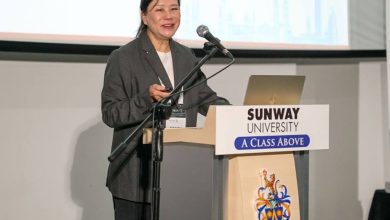For Gender Equality, Support Men in Taking Up Family Duties

My wife knows I am taking part in an Applied HE event, but I haven’t had the nerve to tell her the title. I am afraid she might laugh “You? Talking about men taking up family duties! Seriously?
In my defence, since lockdown started in March, I have been home with the family 24/7 and I have been doing more than my share of laundry, cooking and cleaning. But deep down I know that six months of model family citizenship doesn’t make up for 30 years of long hours at work and extended periods when I was overseas travelling on business, leaving my wife to pick up the pieces.
With this confession out of the way, “How should we support men in taking up family duties?” As a senior university manager, I naturally approach this from the point of view of: How should universities support men in should taking up family duties?” Framing the question in this way makes me realise that universities have, arguably, been focusing their efforts on the wrong things.
Many universities have been working hard to increase opportunities for women and girls. Most UK and Irish universities, for example, including my own University of Limerick – which is led by Kerstin Mey, the first female president of an Irish university – are signed up to the Athena Swan Charter to eliminate gender imbalances in pay and participation in higher education.
In practice, once we go beyond eliminating overt sexual discrimination in hiring and promotion – which is outlawed in many countries – this means universities aim at either supporting the professional development of women and encouraging their participation in under-represented areas like STEM or trying to remove some of the obstacles that are presumed to put them at a disadvantage compared to their male counterparts.
The latter would include allowing flexible working hours so that mothers can drop their children off at school or pick them up, operating creches on campus for babies or kindergartens for pre-school children. Some universities have afterschool clubs for the children of staff.
All these are very admirable, and I have championed many of these initiatives personally. But as the topic of today’s Fireside Chat makes clear, many of these measures presume that female academics are naturally at a disadvantage to men because they are wives and mothers and have duties in the home. If men took their fair share in the home, many of these obstacles to the advancement of female academics would fall away.
My contention is that not only has almost no university I know proactively encouraged male staff to take up a greater share of family duties, but often their initiatives to promote gender equality uncritically assume women are bound to do more at home.
I will finish with one example of this. When I first became a dean of a business school, I worked at Manchester Metropolitan University, then regarded as a very progressive UK university with a pioneering female VC.
The university had introduced paternity leave to encourage men to look after new-born babies. When I asked the VC for paternity leave, as my sixth baby was due, she said, “oh I’m sorry dear, paternity leave doesn’t cover senior managers like us”.
If the problem is that women can’t advance because they shoulder an unfair burden at home, arguably the solution is not to find ways to help them cope in academia despite this burden, but for universities to encourage men to play their full part at home.
In the same way, if the problem is people falling off a dangerous cliff, the best solution is a fence at the top, rather than an ambulance at the bottom to treat the injured.
Story by Professor Nigel Healey, Professor of International Higher Education and Associate Vice-President (Global Engagement) at the University of Limerick.
To learn more about this topic, watch the recording of our recent AppliedHE Fireside Chat webinar!




